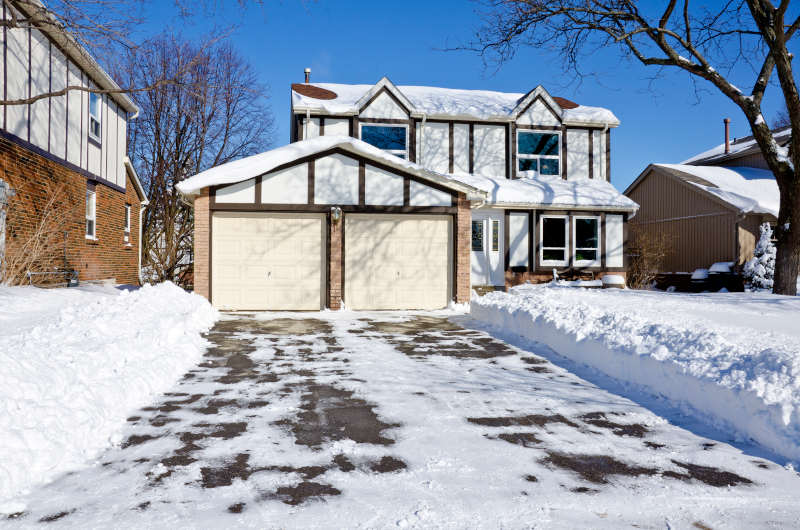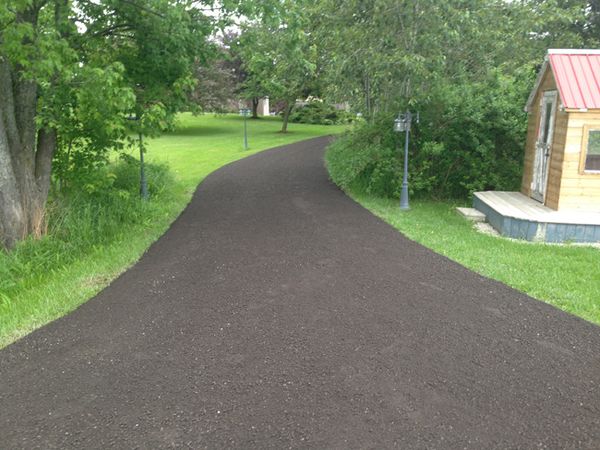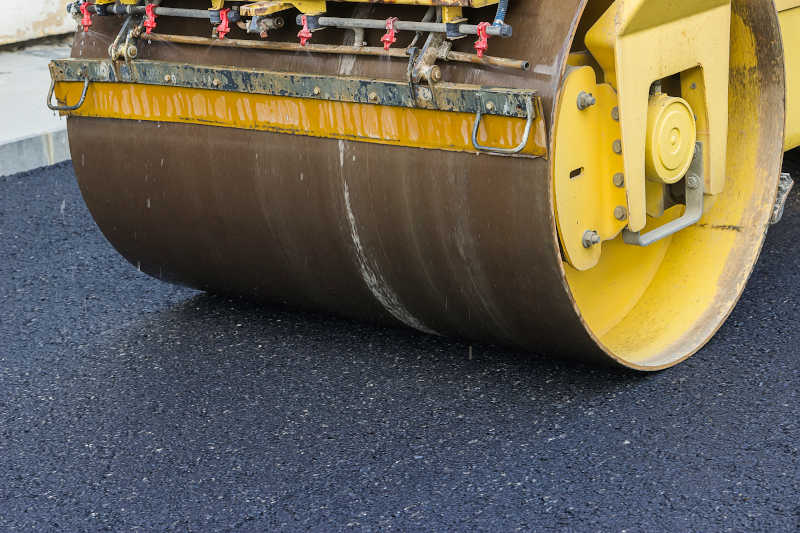Colorado Springs, CO
Mon-Fri: 8am – 6pm
Colorado Springs, CO
Mon-Fri: 8am – 6pm

7 min
Understanding the Impact of Colorado Springs Winters on Asphalt: Tips from Apex Asphalt
The harsh winters in Colorado Springs can take a significant toll on asphalt driveways and parking lots. With frequent temperature fluctuations, over 57.3” average snowfall, and repeated freeze-thaw cycles, asphalt surfaces face immense pressure during the winter months. If you own or manage an asphalt driveway or parking lot in Colorado Springs, you are likely all too familiar with the cracks, potholes, and deterioration that can emerge after winter. Preparing asphalt to withstand these seasonal challenges is crucial for maintaining safe, smooth, and functional paved surfaces.
This blog post will explain precisely how Colorado Springs winters impact asphalt and provide tips to mitigate the damage. Your asphalt can survive and thrive season after season with proper preparation and care. Read on to learn how to protect your asphalt investment from harsh Colorado Springs winters!
Colorado Springs winters are harsh, with heavy snowfall, severe storms, and dramatic day-to-night temperature swings. Temperatures drop into the 20s by late October; the first snowfall typically happens in early to mid-November. Throughout winter, average highs range from 30-50°F while lows drop below freezing, often into the single digits or teens. On average, Colorado Springs gets around 60 inches of snow per year, with snow possible from late September through April. Blizzard conditions bring wet, heavy snow and intense winds, negatively impacting exposed asphalt. The repeated melting and refreezing of snow builds up thick sheets of ice that lead to slippery conditions and stress asphalt surfaces.
The dramatic temperature fluctuations between day and night lead to damaging freeze-thaw cycles. As water seeps into cracks and pores in the asphalt and repeatedly freezes and thaws, the asphalt expands and contracts. This widens cracks and accelerates the deterioration of the asphalt. In short, Colorado Springs winters present some of the most challenging conditions asphalt can face. Proactive maintenance is required to help asphalt withstand this harsh seasonal onslaught.
Understanding why asphalt is vulnerable to damage from Colorado winters helps to first understand what it is made of. Asphalt is a composite material comprising aggregates like stone, sand, and gravel bound together by asphalt cement, also called bitumen. This bitumen is a thick, black, petroleum-based substance that is the glue.
The freeze-thaw cycle is one of the most damaging elements for asphalt in a Colorado Springs winter. During the warmer daytime temperatures, the asphalt softens, and any moisture on the surface can penetrate into cracks. At night, when temperatures plunge below freezing, that moisture trapped inside the asphalt freezes and expands.
This expansion puts outward pressure on the asphalt. Over repeated freeze-thaw cycles, the constant expansion and contraction causes cracks to widen and deepen. The freezing moisture also pushes individual aggregate particles out of place, leading to raveling and potholes.
Having moisture trapped within the base makes the impacts of the next freeze-thaw cycle even worse. The constant internal pressure causes deterioration to accelerate. Without proper sealing and maintenance, freeze-thaw damage can quickly snowball into major asphalt cracking, alligator cracking and potholes.
Common Winter-Related Asphalt Issues
Colorado winters inevitably take their toll on asphalt surfaces. Some of the most common asphalt damage seen after winter include:
Cracking
Cracks form when the asphalt repeatedly expands and contracts due to temperature swings. Cracks allow moisture to penetrate deeper into the asphalt.
Potholes
When water seeps into cracks and freezes, it can displace aggregated and break pieces of asphalt loose, creating holes or depressions.
Raveling
This occurs when the asphalt surface becomes unglued and aggregate particles are dislodged. Plowing and chains can accelerate raveling.
Surface Deterioration
Issues like fading, discoloration, and oxidation are amplified when asphalt is subjected to repeated freeze-thaw cycles, snowplows, and deicing chemicals.
Poor Drainage
Melting snow and ice overwhelms the drainage capacity of some asphalt surfaces, leaving standing water that accelerates damage.
Many of these issues start minor but quickly compound year after year if left unaddressed. Performing prompt asphalt patching and repairs as soon as winter weathering is noticeable can stop the damage before it escalates into major problems.
While Colorado winters can be harsh on asphalt, there are preventive maintenance steps you can take to protect your asphalt driveway or parking lot from seasonal damage:
Sealcoating
Having your asphalt driveway sealcoated before winter helps protect the surface from moisture and oxidation. The protective layer seals cracks and pores where water could penetrate. Sealcoating should be done every 2-4 years.
Crack Sealing
Identifying and properly sealing any cracks in the asphalt surface prevents moisture from seeping in and expanding when frozen. This minimizes further cracking.
Pothole Patching
Fixing any existing potholes or depressions with fresh asphalt patching eliminates weak spots for water to collect and freeze-thaw cycles to intensify.
Re-Striping
Refreshing parking lot striping and paint lines before snowfall ensures drivers can navigate your parking lot and helps snow plow drivers, too.
Snow Removal
Diligently plowing and shoveling new snow before it can accumulate prevents thick sheets of ice from forming and damaging the asphalt underneath.
Deicers
Use asphalt-safe deicers to melt ice; avoid excessive salt. Always remove slush to minimize refreezing.
Drainage
Ensure adequate slopes and functional drains to allow melting snow/ice to run off entirely rather than pooling on the surface.
With proper preparation and proactive upkeep, your asphalt can stay one step ahead of whatever winter throws at it. Contact the experts at Apex Asphalt for customized winter asphalt maintenance recommendations. Investing a little now saves a lot long-term.
After learning about all the potential winter damage, you may be wondering if the investment in winter-ready asphalt treatments is worthwhile. Rest assured, the benefits make proactive maintenance incredibly valuable:
Prevents Costly Repairs Addressing minor issues before they escalate into major damage saves you thousands in repairs down the road. It’s much cheaper to sealcoating now than fully replace degraded asphalt later.
Promotes Safety
Keeping your asphalt smooth and free of cracks, holes, raveling, and ice buildup prevents falls and improves driveway/parking lot safety.
With proper sealing and crack repairs, asphalt parking lots can retain its integrity and last 20-25 years or more, even with winter stresses, and asphalt driveways can last 25-30 years.
Maintains Functionality
Sealed and maintained asphalt provides reliable, long-lasting driveway access and parking capacity year-round.
Enhances Appearance
Proactive care keeps asphalt fresh and uniform while preventing unsightly damage.
Adds Value
An asphalt surface in good condition boosts curb appeal and property value versus one riddled with neglect.
Colorado Springs winters present some of the most challenging conditions for asphalt surfaces. The repeated freeze-thaw cycles, heavy snow, ice storms, and temperature extremes all take a toll on asphalt driveways and parking lots. However, with proper preparation and proactive maintenance from asphalt professionals like Apex Asphalt, your asphalt can survive and thrive season after season.
The key is being diligent about sealcoating, crack repairs, and patching before winter hits. Keeping snow and ice under control once it arrives also minimizes damage. Investing in winter-ready asphalt now will save money, maintain safety, extend your lifespan, and provide year-round performance and aesthetics. Don’t wait until major issues arise. Contact Apex Asphalt today to discuss customized solutions to keep your asphalt looking great and performing optimally despite harsh Colorado Springs winters. Protect your asphalt and budget with preventive maintenance – the experts are here to help!

9 min

7 min